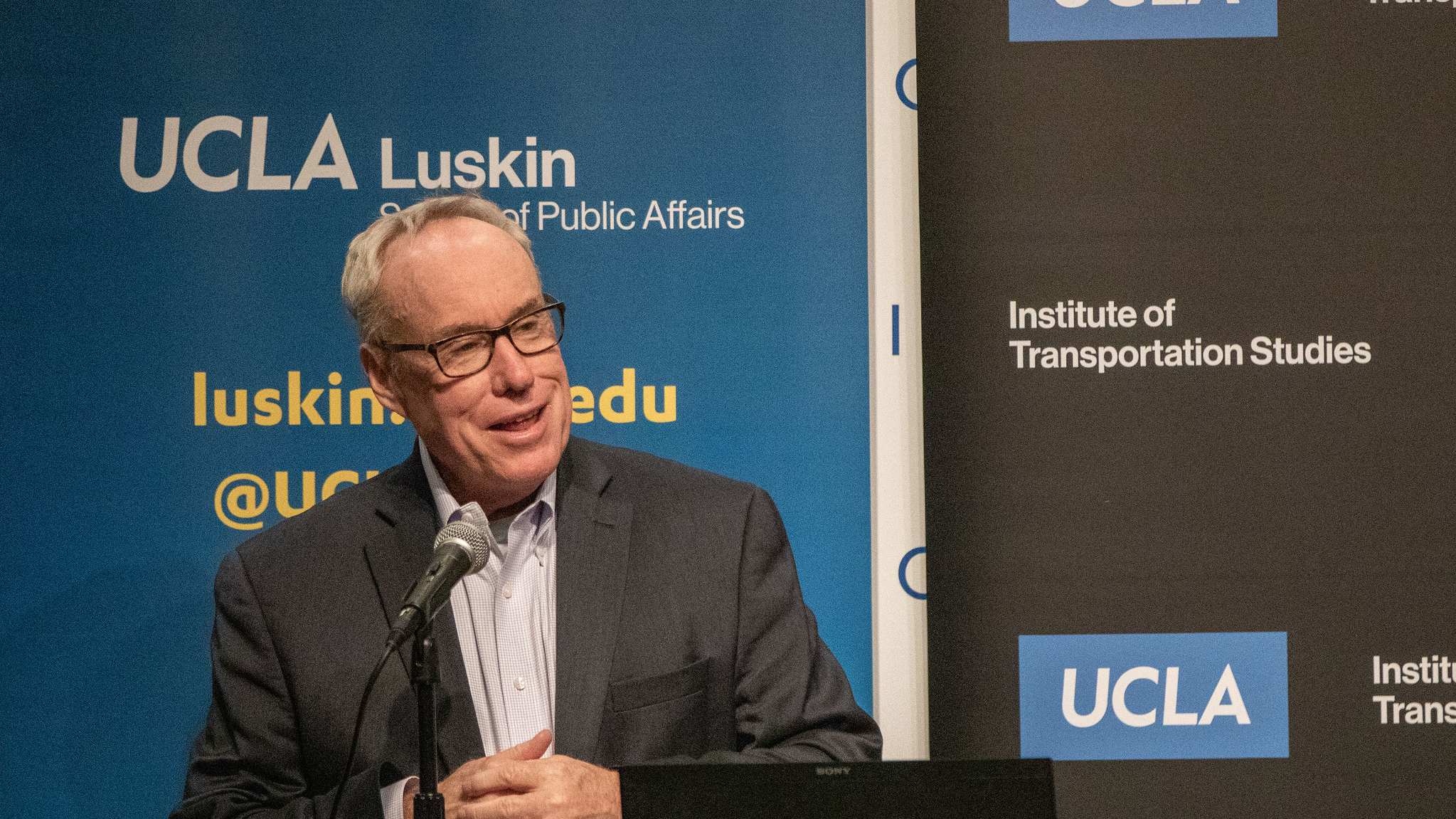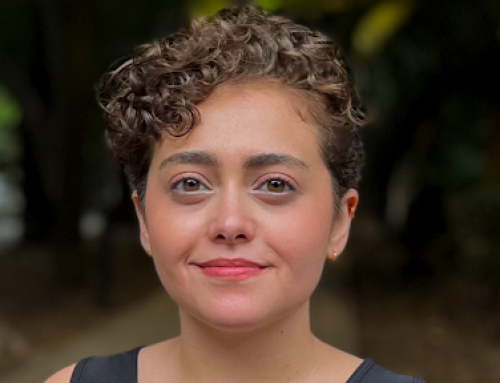After 23 years at the helm, Brian D. Taylor will step down as director of the UCLA Institute of Transportation Studies, effective July 1. He will be succeeded by Adam Millard-Ball, professor of urban planning at the UCLA Luskin School of Public Affairs.
Taylor has led UCLA ITS since 2001, playing a critical role in the institute’s expansion. Under his tenure, UCLA ITS has transformed from a small operation with limited staff and resources into a nationally influential research center with more than 75 scholars and staff conducting cutting-edge research in eight program areas. The institute has also established partnerships in several consortia, most recently being named the lead in a five-year, $7.5 million federally funded Center of Excellence on New Mobility and Automated Vehicles.
I am honored to have collaborated with so many talented and motivated students, staff, and faculty in building the UCLA Institute of Transportation Studies into the productive and influential transportation research center it is today. And I am confident that the institute will continue to effectively tackle our most pressing environmental, equity, and technological transportation challenges in the years ahead.
– Brian D. Taylor
In recent years, UCLA ITS has…
- Joined the ITS branches at Berkeley, Davis, and Irvine in 2016 to form a four-campus University of California Institute of Transportation Studies consortium.
- Significantly expanded its California-focused transportation policy research in 2017 due to substantially increased annual state funding through the Road Repair and Accountability Act (SB 1).
- Supported five graduate transportation degree programs in three academic departments, each of which has recently climbed in their most widely recognized national rankings — Civil & Environmental Engineering (#12), Public Policy (#14), and Urban Planning (#1).
- Supported the recruitment of three transportation engineering faculty since 2020 and the creation of master’s and doctoral degrees in transportation engineering.
- Directed more than $3 million in funding to support graduate students.
- Supported more than 20 former transportation students who have moved on to tenured or tenure-track faculty positions at leading universities around the world, including Harvard, UC Berkeley, UC San Diego, and University of Virginia.
- Broadened research focus areas to include access to opportunities, the environment, new mobility, parking, public transit, traffic, transportation & communities, and transportation finance.
Taylor’s Leadership Roles
Taylor worked professionally as a transportation planner/analyst for the Metropolitan Transportation Commission before pursuing a PhD in urban planning under the mentorship of Martin Wachs at UCLA. Taylor’s academic focus on transportation finance and governance made him a natural fit for policy engagement.
He began his academic career as an assistant professor at the University of North Carolina at Chapel Hill. In 1994, Taylor joined the UCLA faculty, one year after Wachs re-established the institute on campus. When Professor Wachs moved to UC Berkeley in 1996, Taylor became the only faculty member on campus dedicated primarily to transportation teaching and research. That same year, he became associate director under Donald Shoup, who had replaced Wachs as UCLA ITS director.
In addition to serving as UCLA ITS director since 2001, Taylor is professor of urban planning and public policy. He also chaired the Urban Planning department for three years and was the director of the Lewis Center for Regional Policy Studies for seven years. In recent years he has been an associate director of the Pacific Southwest Region 9 University Transportation Center and this year was chair of the council of directors for the four-campus UC ITS.
Building on Two Decades of Momentum
 Incoming director Millard-Ball brings a wealth of experience in data science and climate change policy. He joined the UCLA Luskin School in 2021, and has recently served as acting director of UCLA ITS during the 2022-23 academic year. In that time, Millard-Ball oversaw TRACtion: Transformative Research and Collaboration, an initiative that brought together academic researchers and community advocates to identify barriers to a just and sustainable future for Los Angeles.
Incoming director Millard-Ball brings a wealth of experience in data science and climate change policy. He joined the UCLA Luskin School in 2021, and has recently served as acting director of UCLA ITS during the 2022-23 academic year. In that time, Millard-Ball oversaw TRACtion: Transformative Research and Collaboration, an initiative that brought together academic researchers and community advocates to identify barriers to a just and sustainable future for Los Angeles.
I’m thrilled to lead UCLA ITS, which Professor Taylor has led and built up with his colleagues for more than two decades. I hope to maintain our contributions to research and policy for our local community in Los Angeles, for California and across the U.S., and increasingly internationally as we confront the global challenges of climate change.
– Adam Millard-Ball
The future for UCLA ITS holds more collaboration with engineering scholars at UCLA, exploration of climate issues in relation to transportation, work on equity and community engagement, and integration of innovative methods in data science.
As for Taylor’s future, he’s not going very far.
“I plan to remain active in transportation scholarship and policy, and look forward to devoting more time to research, teaching, and mentoring in the years ahead,” he said.





